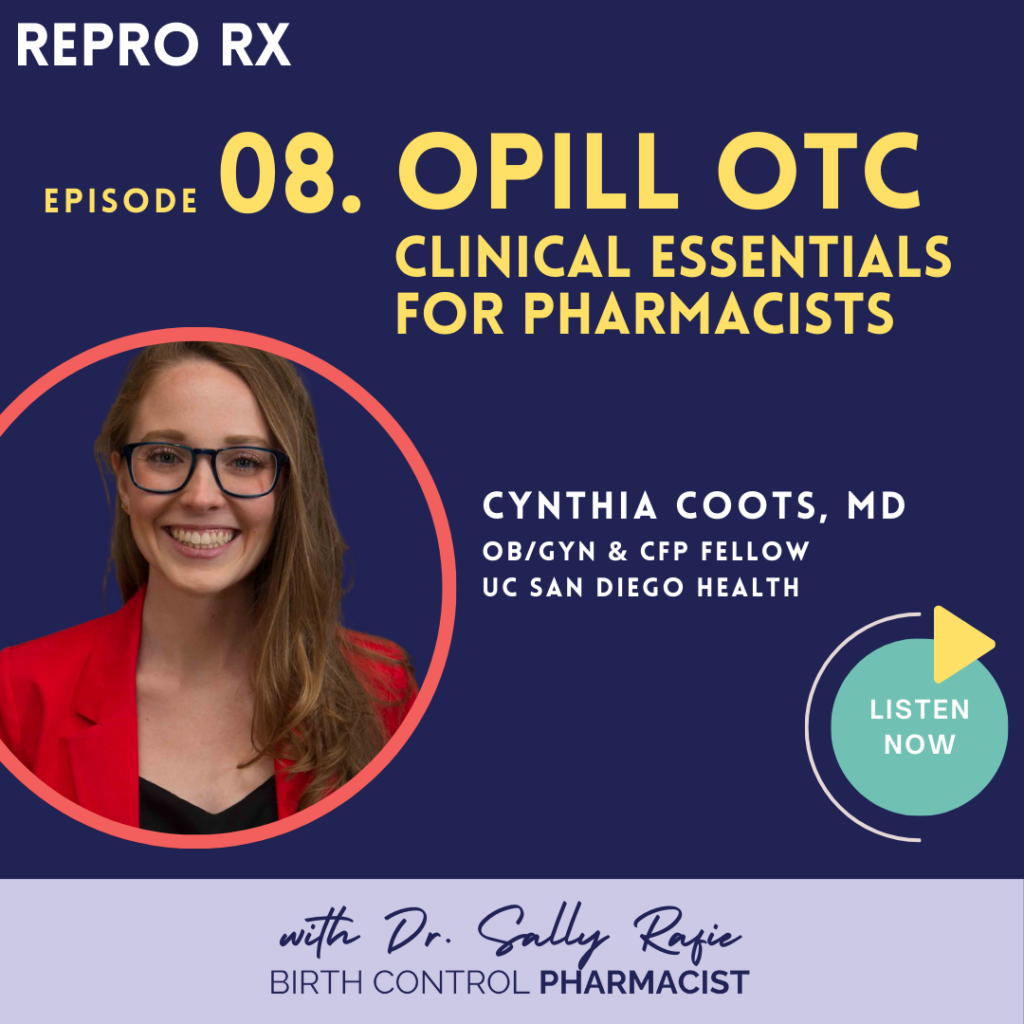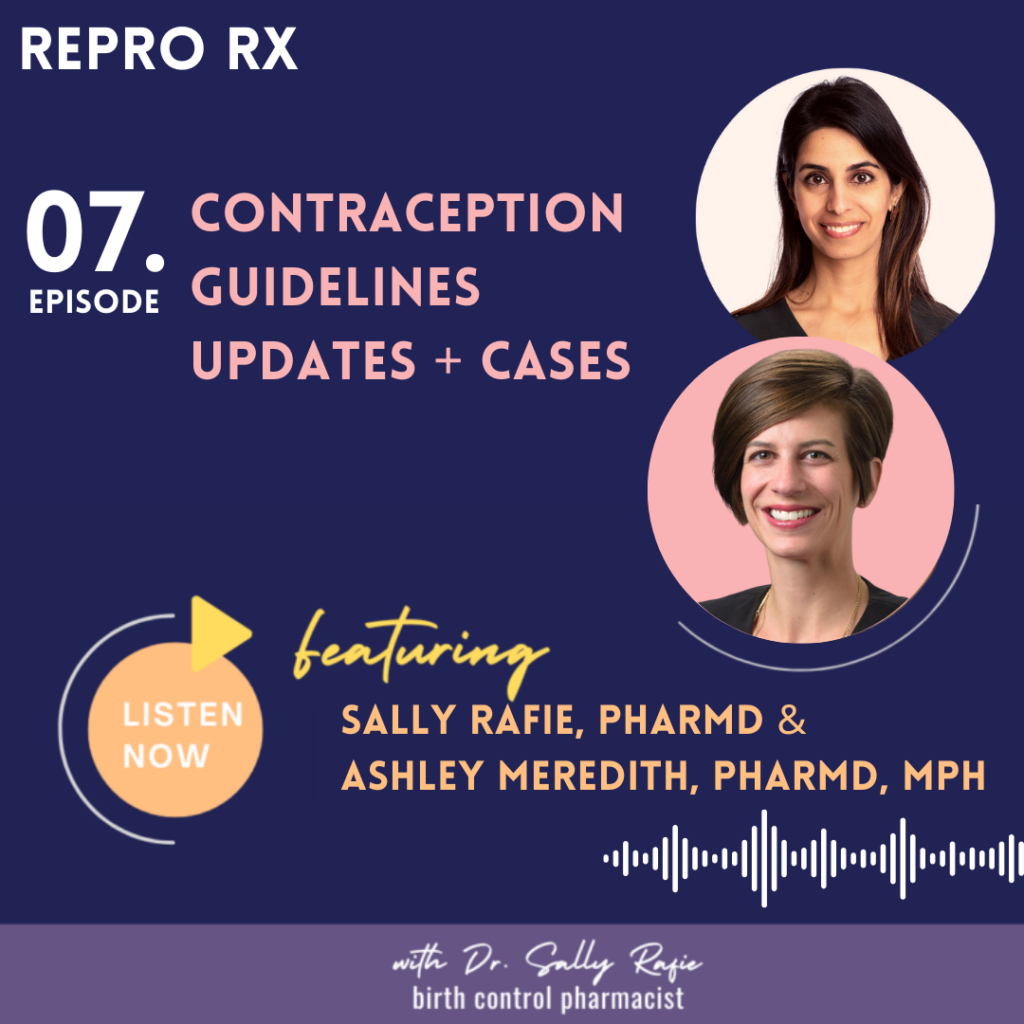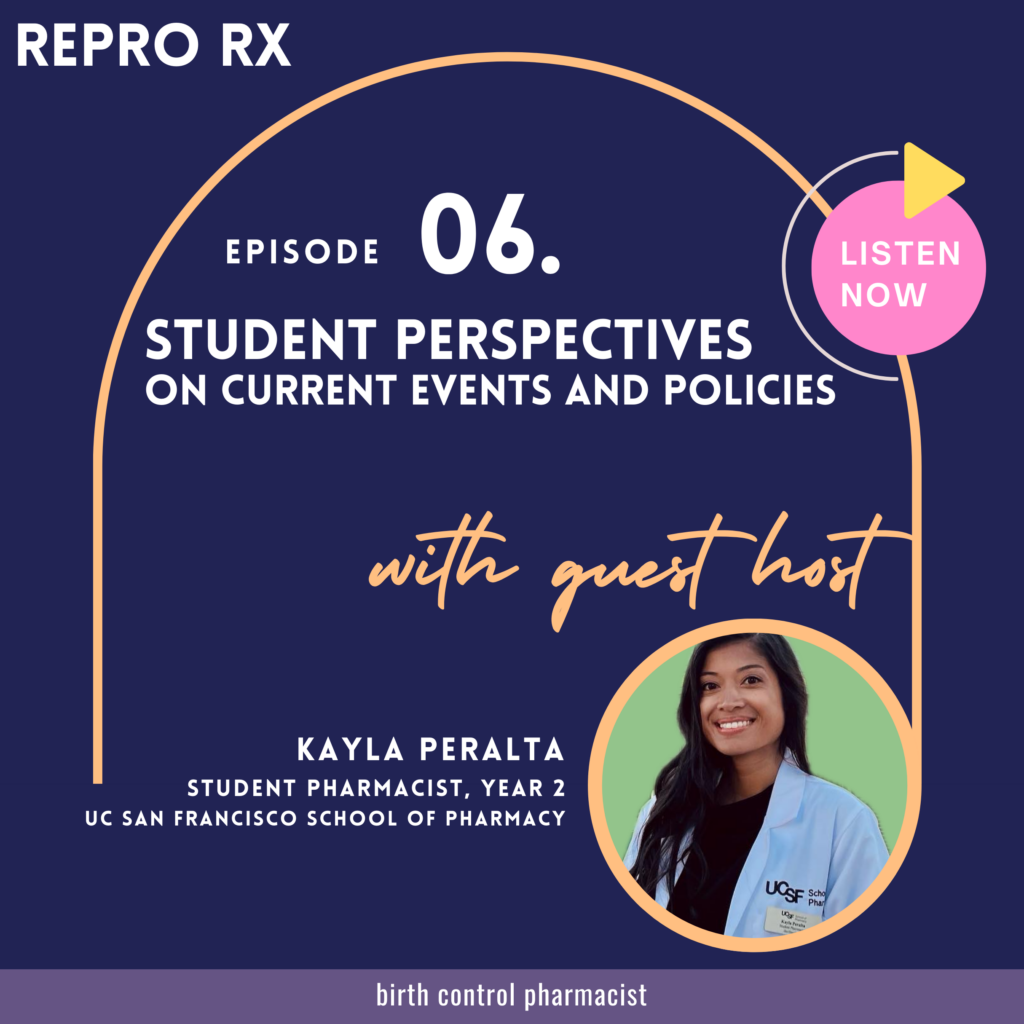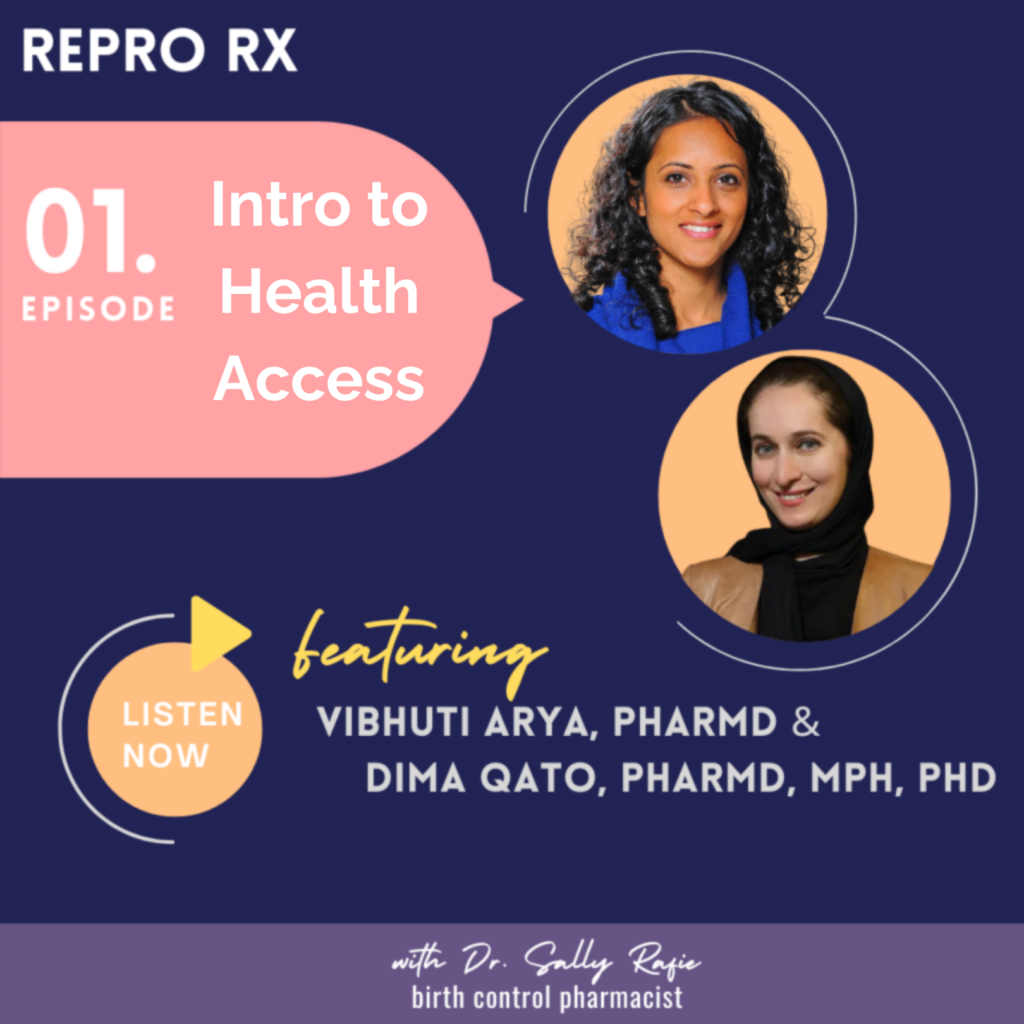Podcast
08. Opill OTC: Clinical Essentials for Pharmacists
The first daily birth control pill that became available over the counter is Opill (norgestrel 0.075 mg). It has been available on store shelves since March 2024, yet awareness among healthcare providers and consumers alike remains low. Dr. Cynthia (Cindy) Coots, MD joins us for a review of clinical essentials for pharmacists. More Information: Free…
07. Contraception Guidelines Updates + Cases
This episode covers key updates to the contraception and reproductive health guidelines that will impact pharmacists, along with patient case examples. The CDC updated their Medical Eligibility Criteria for Contraceptive Use and Selected Practice Recommendations guidelines. The Office of Population Affairs also updated the Quality Family Planning recommendations. Resource Links: MEC Chart, MEC Full Guidelines,…
06. Student Perspectives on Current Events and Policies
Guest host Kayla Peralta, student pharmacist from UC San Francisco School of Pharmacy, speaks with her classmates about recent events and policy changes.
05. Opill Over the Counter
Victoria Nichols, Director of Free the Pill coalition, shares the journey to the first-ever daily birth control pill approved by the FDA for OTC use in the United States. Opill was approved by the FDA in 2023 and became available on store shelves in 2024. The Free the Pill coalition (formerly known as the Oral…
04. Youth Friendly Pharmacy Services
Does your pharmacy offer youth friendly services? Learn how you can incorporate youth services into your practice in this episode. Youth and young adults deal with numerous barriers that impact their access to reproductive care. In order for patients to feel comfortable asking a pharmacist questions, it is imperative we create an environment that is…
03. Rural Communities
Rural communities are disproportionately affected when it comes to reproductive care. These communities face challenges to access basic healthcare services. In rural communities patients have to travel further to access healthcare services. Rural communities have been negatively impacted by pharmacy closures which increases the burden these communities and remaining pharmacies face. Pharmacists who work in…
02. Reproductive Justice
Reproductive justice is the human right to maintain personal bodily autonomy, have children, not have children, and parent the children we have in safe and sustainable communities. To support this right for all people, pharmacists can facilitate access to healthcare services. It is important for pharmacists to show they are here for their community members…
01. Intro to Health Access
Health access refers to individuals being able to attain the highest level of health they can without any socially determined factors. Pharmacists are in the unique position to help promote health access and understand the concerns their community faces. The role of the pharmacist goes beyond medication dispensing as they can truly provide valuable services…







